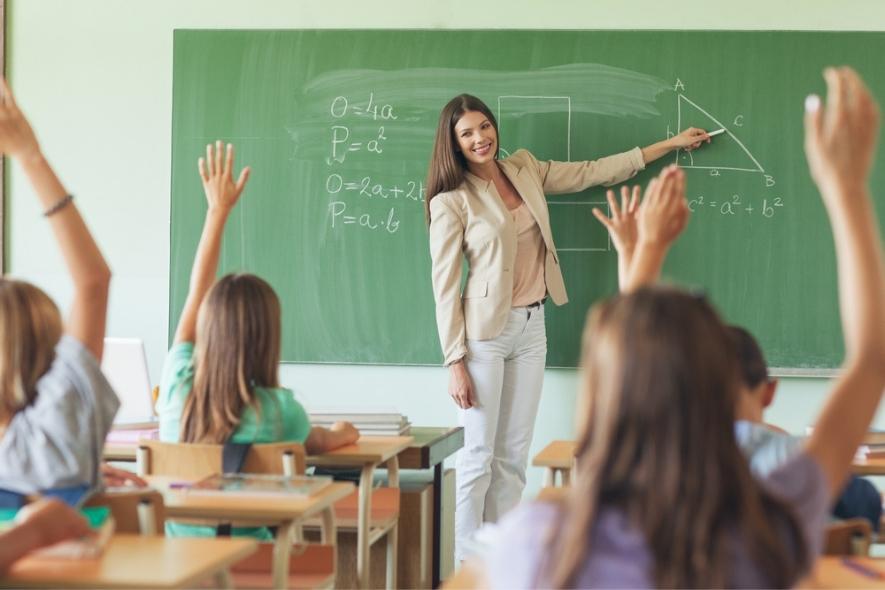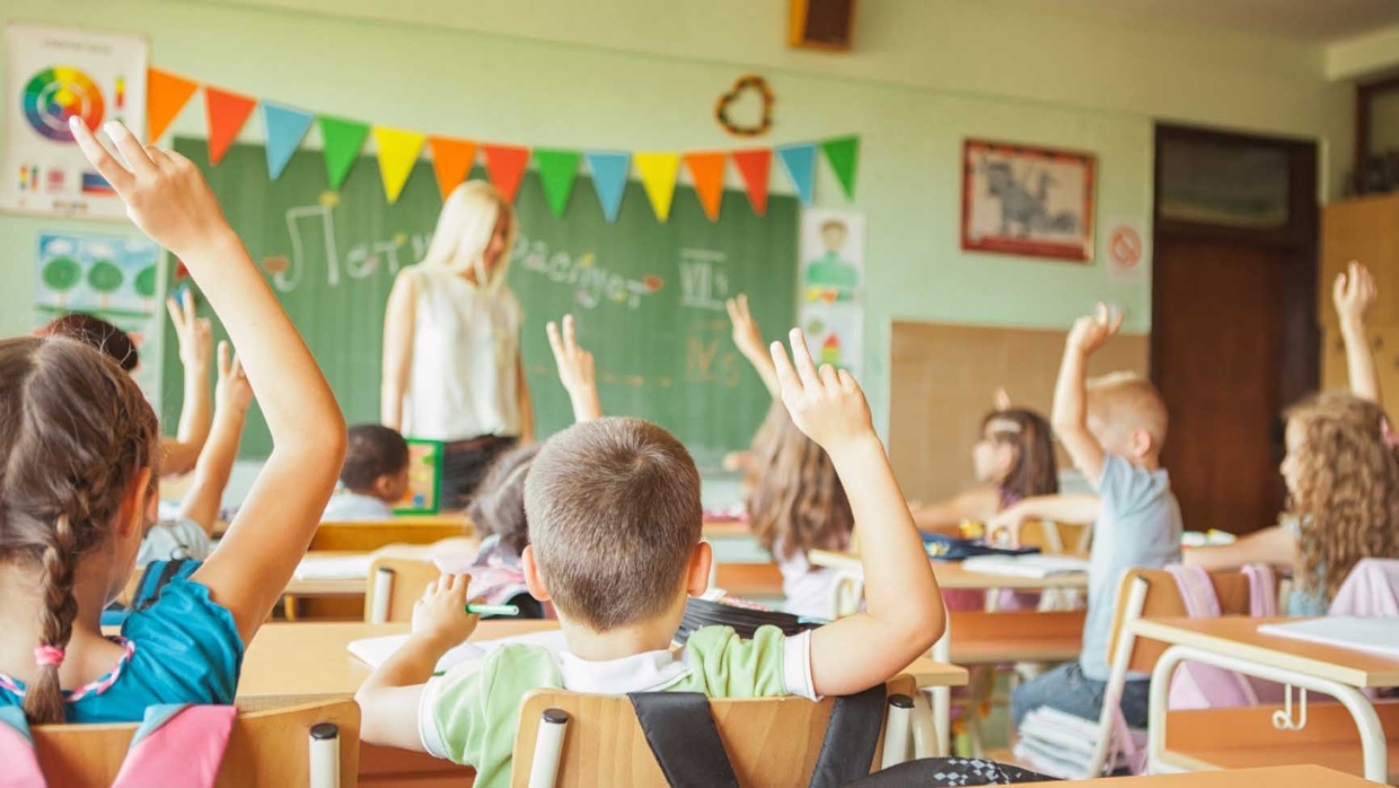Top Primary Science Tuition Singapore to Help Your Child Excel
Top Primary Science Tuition Singapore to Help Your Child Excel
Blog Article
Discover the Necessary Benefits of Understanding Key Science for Young Learners
The importance of primary science education and learning for young learners expands much beyond mere understanding purchase; it offers as a basic column in establishing important abilities such as vital reasoning, analytic, and creativity. Involving with clinical principles via inquiry-based and interactive tasks not only grows interest however additionally prepares for resistant, positive learners. As we discover these benefits further, it comes to be clear that the implications for future scholastic and individual growth are extensive. What certain approaches can teachers employ to make the most of these benefits?
Enhancing Essential Thinking Skills
Promoting essential assuming skills in young learners is vital for their cognitive growth and future scholastic success. Critical thinking enables children to assess details, evaluate proof, and make notified decisions, which are crucial abilities in today's information-rich culture. By involving in clinical questions, young students can enhance these abilities as they explore ideas via testing, thinking, and observation.
In primary science education and learning, educators can facilitate crucial reasoning by urging students to ask inquiries, formulate theories, and conduct experiments. This hands-on method enables children to practice analytical and establish sensible thinking skills. As an example, when students check out the residential or commercial properties of products or the concepts of motion, they learn to examine their searchings for seriously and reason based on evidence.
Furthermore, conversations and joint jobs can advertise crucial thinking by providing chances for learners to articulate their thoughts, challenge presumptions, and take into consideration diverse point of views. By developing an encouraging atmosphere that values questions and representation, educators can support important thinking skills that empower young learners to end up being long-lasting learners and independent thinkers. Eventually, boosting these skills lays a durable structure for their future scholastic ventures and individual growth.
Cultivating Interest and Expedition

Primary scientific research education gives a structured environment where young learners can explore various sensations with hands-on experiments and monitorings. By permitting them to interact with products and participate in inquiry-based knowing, instructors produce opportunities for youngsters to formulate theories, test their concepts, and reason. Such experiences support a sense of marvel and enjoyment about scientific research.

Building Self-confidence in Issue Resolving
Building confidence in analytic is a crucial part of main scientific research education and learning that encourages young learners to approach obstacles with resilience and creativity - primary science tuition Singapore. When kids are encouraged to engage with scientific principles with hands-on activities and inquiry-based knowing, they create crucial skills in crucial thinking and evaluation. This process not only boosts their understanding of scientific concepts but additionally promotes a sense of ownership over their discovering
To construct confidence, educators ought to produce an encouraging environment where mistakes are seen as chances for development rather than failures. This encourages pupils to take dangers and explore various remedies to issues. By giving scaffolding and advice, teachers can assist students navigate complex jobs, gradually boosting their independence in problem-solving scenarios.
Additionally, joint understanding experiences, such as team tasks or experiments, can additionally improve students' confidence as they learn to articulate their ideas and listen to others' point of views. These communications support social abilities and enhance the concept that analytic look at this site is usually a cumulative venture. Ultimately, growing self-confidence in problem-solving prepares young learners for future academic obstacles and furnishes them with the devices required for long-lasting knowing.
Motivating Creativity and Innovation
In the world of primary science education and learning, motivating creative thinking and technology is crucial for growing a vibrant learning environment. By promoting a society where young learners can check out ideas and experiment freely, instructors aid pupils develop important assuming abilities and an interest for discovery. Creative thinking in science encourages kids to ask concerns, devise hypotheses, and participate in hands-on tasks that promote their creative imagination.
Integrating open-ended jobs and inquiry-based learning into the educational program allows trainees to reveal their one-of-a-kind viewpoints and options. For circumstances, when charged with solving an issue pertaining to their atmosphere, students can conceptualize numerous techniques, leading to innovative end results that display their originality. This not just grows their understanding of clinical concepts however also imparts a sense of ownership over their discovering procedure.
Furthermore, innovative scientific research education and learning supports partnership among peers, as pupils frequently share ideas and improve each other's insights - primary science tuition Singapore. This joint spirit promotes not only advancement but also vital social abilities. Thus, by prioritizing creativity and technology in main science education and learning, we empower young students to think critically, accept difficulties, and imagine possibilities, laying a strong structure for long-lasting discovering and exploration
Preparing for Future Understanding Difficulties
Young students' capability to navigate future learning obstacles rests on a solid foundation in primary science education. This foundational understanding gears up pupils with critical believing skills and a systematic approach to analytical, crucial for taking on complex problems in an ever-evolving globe. Main science cultivates inquiry-based discovering, encouraging students to ask questions, check out theories, and take part in hands-on experiments.
As they establish these abilities, students end up being adept at analyzing information, recognizing patterns, and drawing notified verdicts. Such competencies are essential this hyperlink not just in clinical areas yet also in modern technology, mathematics, and design (STEM), where interdisciplinary knowledge is increasingly essential.
Furthermore, main science education and learning grows a sense of curiosity and durability in young learners, allowing them to see obstacles as chances for development. As they encounter and get rid of obstacles in their scientific expeditions, they construct confidence in their capability to introduce and adjust.
Inevitably, a strong foundation in primary science not only prepares young learners for scholastic quests yet also equips them with the devices necessary for long-lasting learning and versatility in a swiftly changing worldwide landscape. By buying key scientific research education and learning, we are buying the future capacity of our learners.
Final Thought
Comprehending primary science is important for young students, as it promotes vital thinking, interest, and creativity. Involving with clinical ideas via hands-on experiments enhances problem-solving capabilities and develops resilience. This fundamental expertise not only equips trainees to analyze data and acknowledge patterns but also supports an inquiry-based attitude. Inevitably, the advantages of key scientific research education prepare children for future academic searches and instill long-lasting knowing habits essential for growing see this in an ever-evolving world.
The importance of key science education for young students expands far beyond simple understanding purchase; it offers as a basic column in establishing vital skills such as important thinking, problem-solving, and creativity. By creating an encouraging setting that values query and reflection, teachers can support essential assuming abilities that encourage young learners to come to be lifelong students and independent thinkers. Hence, by prioritizing imagination and innovation in main scientific research education and learning, we empower young students to assume critically, welcome obstacles, and picture opportunities, laying a solid foundation for long-lasting discovering and expedition.
Young learners' ability to navigate future knowing challenges hinges on a strong foundation in primary scientific research education and learning.Understanding key science is crucial for young learners, as it cultivates important thinking, curiosity, and creative thinking.
Report this page